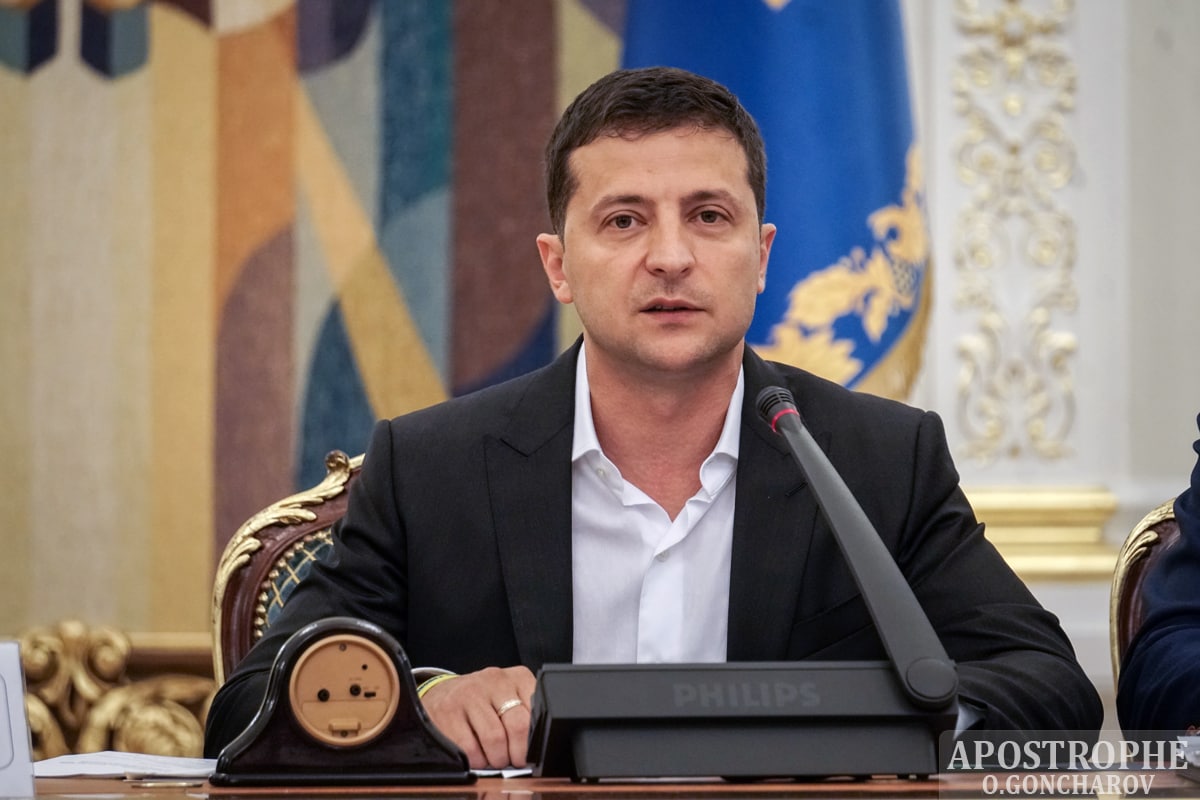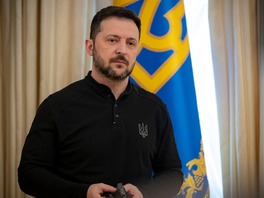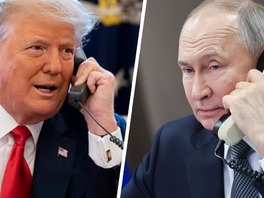Independence Day marks the beginning of the new political season in Ukraine, even though its active phase will begin in early September with the resumption of the Parliament’s work. Despite wide expectations of serious political turbulence, there is currently no reason to believe it will occur before the end of 2021. The government preemptively works to neutralize potential threats, for example by lowering electricity tariffs, introducing an annual heating tariff, consolidating law enforcement, and keeping a rein on radical groups of different ideologies. Nevertheless, the concentration of power in the hands of authorities raises concern among the country’s key beneficiaries. With this, Ukraine shall see the rise of political pressure from time to time as the beneficiaries seek to retain their influence.
The domestic political situation in Ukraine will likely remain under control up until the end of 2021, although a certain degree of political turbulence may occur in the fall. In particular, tariffs will prove a rather painful issue for the authorities. Despite the government's decision to lower electricity tariffs, there is still no systematic solution for the tariffs on heating. At the same time, the recently introduced annual tariff is unlikely to help the cause. While the opposition will attempt to use the tariff issue for its political benefit, the situation shall not escalate to the point of a so-called Tariff Maidan. Protest moods in Ukrainian society are currently very low. At the same time, it is highly unlikely that the opposition forces would consolidate. It is hardly possible to imagine the European Solidarity faction publicly aligning with the Opposition Platform – For Life or Batkivshchyna. With this, separate protests may occur, yet they would not lead to any mass demonstrations.
An attempt to implement the Steinmeier formula – at the same time ignoring security issues – could prove to be another factor resulting in political destabilization. Ex-President of Ukraine Petro Poroshenko and his party would be keen to start the “betrayal” narrative, involving affiliated organizations such as the Democratic Axe, the Movement of Resistance to the Capitulation, and the National Corps in a potential campaign. The latter is not pleased with the government amid law enforcement’s prosecution of several National Corps activists suspected of racketeering. As of now, however, President Zelensky demonstrates no signs that could lead to the unfolding of this scenario. Despite Angela Merkel’s insistence on the implementation of the Steinmeier formula, Zelensky remains unwavering in his position – security, demilitarization, and border control should come before the resolution of political issues. Therefore, an akin scenario is unlikely. It’s worth noting, however, that President Zelensky supports the cluster approach proposed by France and Germany and amended by Ukraine. If there is a will, one may portray the said approach as a “betrayal” despite its prioritization of the security component, which is in the national interest of Ukraine.
Volodymyr Zelensky has managed to gain full control of the country’s agenda. He sets the tone for all processes in the state, being its key leader and newsmaker. The opposition, in turn, struggles to obstruct him. Even the so-called amendment spam (the Ukrainian version of a filibuster) fails to work. At the same time, Zelensky has managed to retain a stable rating of 27-30%, using the National Security and Defense Council as an instrument for prompt and effective decisions. It’s worth noting that the debates concerning the imposition of sanctions against Ukrainian citizens are still ongoing, but, as they say, the caravan marches on. President Zelensky also enjoys a high level of public trust.
At the same time, Mr. Zelensky has successfully stabilized the situation in the Parliament, putting an end to any speculations about the breakup of his single-party majority. As of today, all bills proposed by the President have sufficient support from the Servant of the People party to pass in the Verkhovna Rada – even without the support of friendly political forces. Moreover, the bills often gain over 300 votes, indicating that they’re important for Ukrainian society rather than merely for one faction.

It's worth noting that Zelensky has managed to stop the discord inside the President’s Office as well, in particular halting the dispute between Yermak and Tymoshenko. The two currently have clearly defined, segregated job responsibilities, even though a certain degree of competition remains. The competition mainly concerns personnel issues, such as the Lyubchenko (First Vice Prime Minister of Ukraine – the Minister of Economy lobbied by Tymoshenko) – Chernyshov (Minister of Communities and Territories Development lobbied by Yermak) clash. At the same time, Volodymyr Zelensky has established a widely acceptable communication strategy with the oligarchs. The president’s closest entourage (Yermak, Tymoshenko, Shefir, and Mindich) are each responsible for communicating with a particular oligarch. An akin approach allows for an equal level of access, which, in turn, helps smooth over potential problems – including those concerning deoligarchization. If someone was to monopolize these communications and access to the president, it could result in a series of problems. Given the status quo, such a scenario is unlikely to take place in the nearest future. It’s worth noting, however, that some analysts believe Andriy Yermak has the ultimate influence on Zelensky.
It is also doubtful that the anti-oligarchic bill will cause a rift in relations between the oligarchs and the government. Everyone understands that – if he so wished – Zelensky could initiate a referendum on the matter and pass the law with much stronger political positions.
The tax bill № 5600 – often described as the anti-Akhmetov bill – will prove decisively more problematic. It shall cause a serious clash, which is evidenced by 11 thousand amendments already registered. As the bill concerns regular taxpayers as well, the oligarchs and the opposition forces associated with them will be able to organize a protest movement. However, it is unlikely to prove massive. Most likely, the passage of bill № 5600 will be strongly connected to the vote on the budget, rendering a compromise inevitable.
A new wave of the COVID-19 pandemic could pose another challenge before the end of 2021. As it is largely anticipated, a lot will depend on the government’s response and ability to minimize the damage. Any missteps will be severely criticized. In particular, it is integral for Viktor Lyashko to advance the vaccination campaign and make sure the hospitals are equipped to handle the new wave, at the same time demonstrating he is a more effective manager compared to Stepanov, his predecessor. Coronavirus will also cause tensions between the local and central governments, as the government has authorized local authorities to enforce quarantine restrictions. Local governments, in turn, are not happy to bear the responsibility, as they will have to deal with numerous outraged citizens. However, recent tendencies illustrate that local governments are not keen to enter into confrontation with the central government – and especially not amid budget formation for the next fiscal year.
The confrontation between the President’s Office and Vitaly Klitschko will serve as another leitmotif of the upcoming few months. According to the information available, Zelensky's team is preparing for Klitschko's resignation as the head of the Kyiv City State Administration. He will be replaced by an acting head of the Kyiv City State Administration who will be provided with all the support necessary for effective work, including various subventions for the construction of major infrastructure projects. It is currently unknown who will replace Klitschko, but it is unlikely to be a completely independent figure. Presumably, it will be an obedient executor of the Presidential Office’s will. At the same time, the President’s Office will select a person who can compete with Klitschko in the mayoral race. The candidacy of the MP from the Servant of the People party Zhan Beleniuk – who is also a gold medalist of the 2020 Olympic Games – is currently being discussed. “Fight fire with fire,” as they say. Alternatively, it is possible that Beleniuk might head the Ministry of Sports. The possibility that the President’s Office reaches an agreement with Klitschko should not be completely disregarded either.
Personnel changes in the government will also cause slight turbulence. The most likely candidates for replacement are Minister of Justice Malyuska, Minister of Defense Taran, and Minister of Ecology Abramovsky. At the same time, Shmyhal's resignation remains unlikely. Shmyhal satisfies the President’s Office and has no further political ambitions, making him rather convenient. It is also problematic to form an entire cabinet, needing enough votes for each new minister. Stefanchuk could also replace Razumkov, yet an akin change would be quite risky. It wouldn’t have the support of the entire single-party majority. However, it is still possible.
It is also worth highlighting the concentration of power in law enforcement that Zelensky and his team have achieved. Avakov's resignation, changes in deputy defense ministers, as well as potential re-subordination of the National Guard and rotations in the Security Service all indicate the strengthening of the president's positions. Zelensky is now becoming more experienced: he understands the importance of holding a monopoly on the use of force, which sends a clear signal to other political players. At present, it’s an advantage, though given the growing authoritarian leanings, one can expect certain oligarchic-political groups to attempt an alliance and start a game to weaken the current government.
Conclusions
At the moment, there is no objective reason to suggest a significant political crisis. The situation is under the government’s control, all the while the opposition is largely confused and fragmented. Certain political forces may attempt to escalate the situation in the fall – either with tariffs, the Steinmeier formula, or other steps concerning the Donbas – yet the probability of these scenarios succeeding is rather low. There is also no reason to expect the formation of an "anti-Zelensky" movement among the oligarchs. They are still inclined to compromise, although the concentration of power in Zelensky’s hands – who is gaining political experience – raises concern. Thus far, the oligarchs rely on the Parliament to serve as a compensatory mechanism, deciding against public confrontation with the President. Most likely, such a situation will persist at least until the beginning of 2022. Given Ukraine’s dynamic political environment, however, there is always a possibility of unexpected turbulence.





